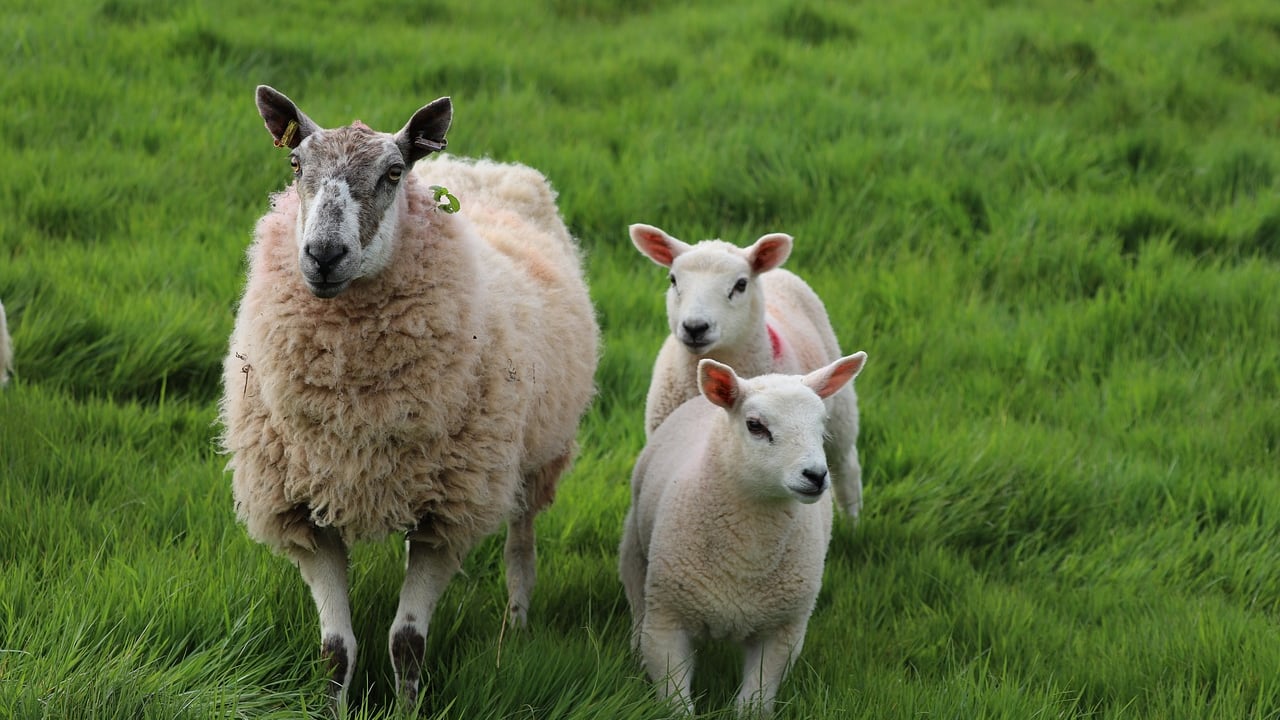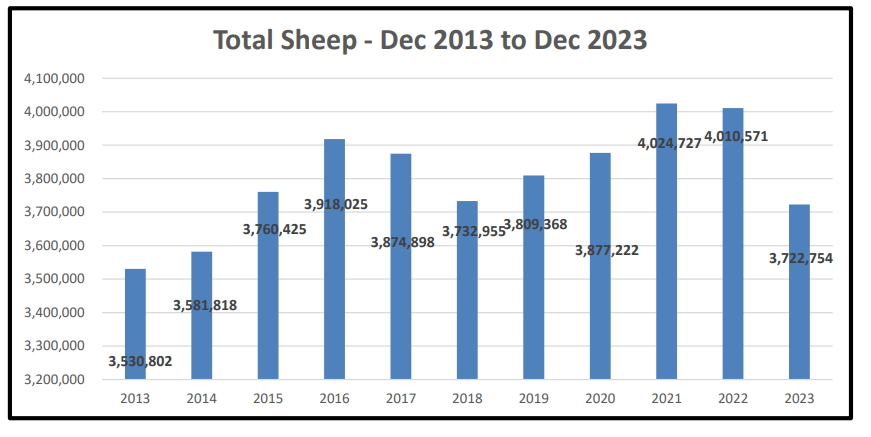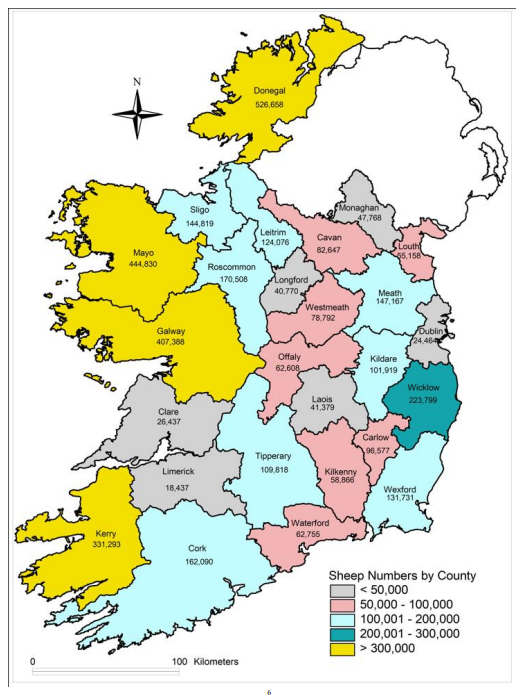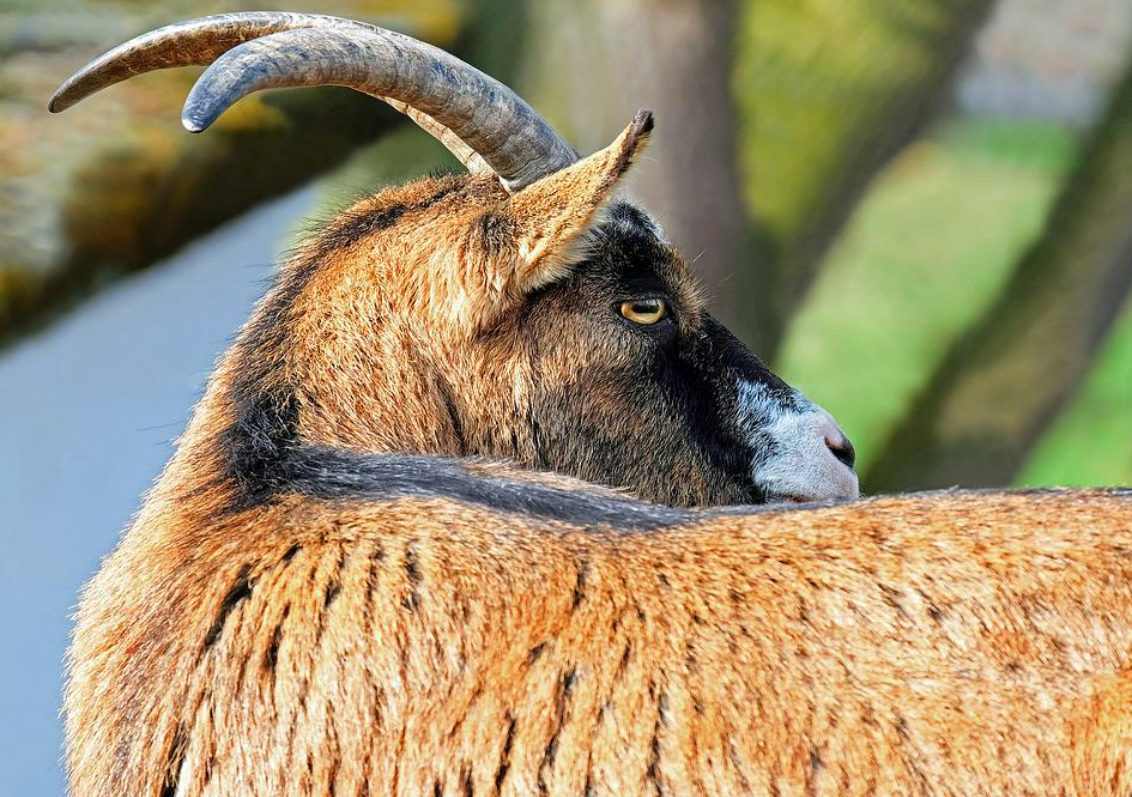DAFM: Census shows 7% decrease in sheep numbers
The total number of sheep in the country in December 2023 decreased by 7% when compared to the previous year, according to the latest sheep census results
The Department of Agriculture, Food and the Marine (DAFM) said that 3,722,754 sheep were kept across 34,519 registered holdings in December 2023.
This represents a decrease of around 290,000 on the December 2022 sheep population figure of 4.01 million.
The department issued census forms to 49,009 registered sheep keepers in December 2023, which included almost 1,500 newly approved or reactivated flocks.
Approximately 44% of 2023 returns received (18,124) were submitted online.
41,592 herds submitted census forms to the department, representing a response rate of 85%.
Of that number, 34,519 herds kept sheep, while 7,082 herds kept no sheep at the time of the census.
Just under 900 respondents who were not keeping sheep on the census date, indicated that they did not intend to re-enter sheep farming in the near future.
The results show that in December 2023 there were 2.56 million breeding ewes over 12 months of age, which is a decrease of almost 100,000 (3.7%) on the previous year’s breeding ewe population.
A total of 82,756 breeding rams was recorded which is down by over 3,000 on the previous year.
1.08 million other sheep were recorded, including lambs, wethers and cull ewes. Thiscategory also decreased by over 185,000 in 2023 (14.7%).
52.2% of all sheep recorded (1,944,769) were classified as lowland/lowland cross breeds while 47.8% (1,778,006) were mountain/mountain cross breeds.
Overall, the greatest number of sheep was kept in Donegal with a sheep population of 526,658.
Limerick recorded the fewest number of sheep (18,437) which represents just 0.5% of the total population.
The greatest number of mountain sheep was kept in Donegal with 313,070, the county also had the highest amount of mountain cross sheep at 114,605.
Galway was the county with the highest number of lowland (123,914) and lowland cross (148,444) breeds.
Of the 34,519 flocks keeping sheep, the average flock size was 108 compared to an average flock size of 113 in 2022.
A total of 69% of flocks (23,749) kept fewer than the national average of 108.
Donegal had the highest number of flocks at 6,854, followed by Mayo with 5,595 and Galway on 4,814.
The department also issued census forms to 1,483 registered goat herd keepers in December 2023.
Census returns were received from 1,075 registered goat keepers, representing a response rate of 72%.
A total of 7,303 goats were recorded, which is a decrease of 21% (1,940 goats) on the December 2022 figure (9,243).
704 respondent keepers declared that they kept goats in December 2023, representing a decrease of just 30 from 2022.
A further 371 keepers declared that they had no goats at the time of the census and of those, 74 declared that they would not be re-entering goat farming.
With 150 herds, Cork had the greatest number of goat herds in 2023. The greatest number of goats was kept in Tipperary where 708 goats were recorded, followed by Cork with 592.
Similar to previous years, the census shows that most domestic goats are kept in very small herds on a non- commercial basis.
The average goat herd size is 10, down from 13 in 2022, and of the herds that submitted a census return, 574 (82%) keep fewer than this figure.








